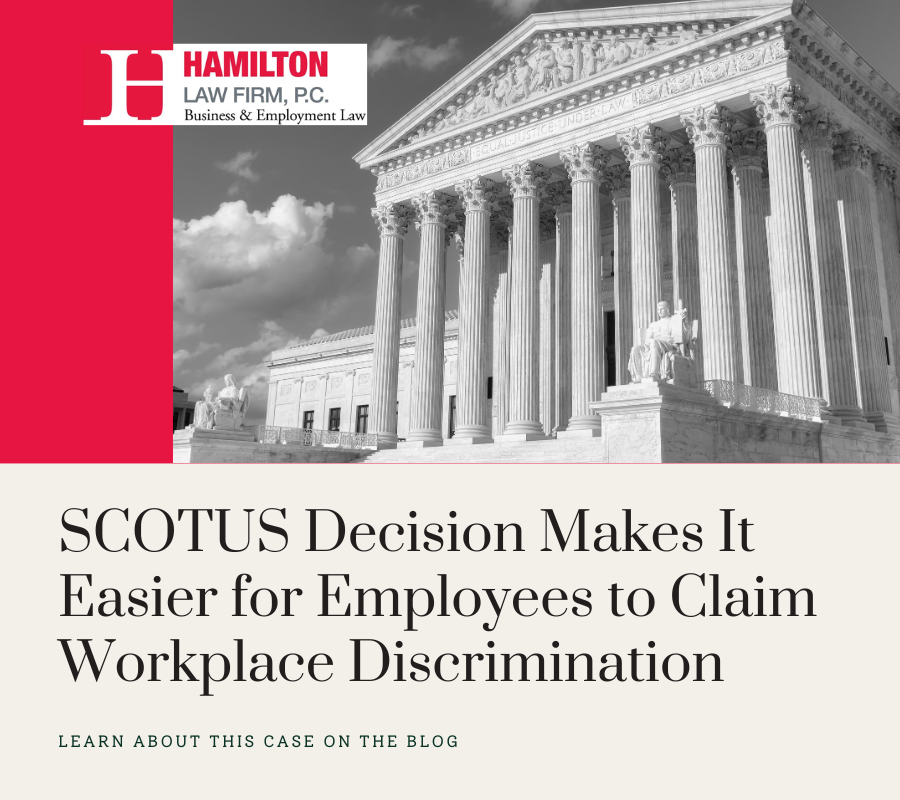On April 17, 2024, the Supreme Court ruled that an employee who files an employment discrimination suit against their employer over a job transfer need only demonstrate that the transfer caused “some injury” and not “significant harm.” The decision lowers the threshold required to file a claim under Title VII of the Civil Rights Act of 1964 and will make it easier for employees to sue for discrimination.
Previously, employees could only file a claim to show that an employer’s actions had caused them significant harm or significant monetary loss. The issue has been under debate for several months, receiving differing opinions from lower courts over what constitutes Job transfer discrimination.
Let’s review this recent ruling and what it means for employment discrimination claims moving forward.
Background and Case
The illustrative case presented before the Supreme Court was brought by police sergeant Jatonya Clayborn Muldrow. Muldrow, who works for the St. Louis Police Department, claims she was transferred from her position in the Intelligence Division because she is a woman.
Muldrow served as a plainclothes officer in the Division from 2008 to 2017, investigating human trafficking and public corruption cases. She was also in charge of the Guns Crime and Gang Units and worked as a task force officer with the FBI.
In 2017, a new unit commander transferred Muldrow out of the Intelligence Division despite her objections and high employment evaluations. The commander justified the decision by, among other things, pointing to the “very dangerous” nature of the Division’s work. Muldrow was reassigned to the Fifth District Division in the same department and at the same rank.
Despite the seemingly lateral move – her pay and rank remained the same – Muldrow claimed the transfer harmed her. She was put in charge of the neighborhood patrol officers, with duties including administration, reviewing reports, and approving arrests. Muldrow also lost her posting with the FBI unit and the take-home car that came with the position, and her schedule changed to include weekends when it previously only included weekdays.
Muldrow sued the police department for employment discrimination. She claimed, in her filings, that the new job, while of similar rank and pay, lacked the same benefits and prestige of her previous posting. Her previous position was assigned to a male sergeant.
Initial Judgements
Although Muldrow presented a claim under Title VII, the federal District Court ruled in favor of the St. Louis Police Department, granting a summary judgement. The 8th Circuit Court of Appeals upheld the judgement, ruling based on precedent that Muldrow had not shown that the transfer had changed her working conditions (benefits, salary, or title) “significantly” and that she had suffered “material employment disadvantage.”
The Supreme Court Ruling
However, in a ruling written by Justice Kagan, the Supreme Court reversed the decision, holding that plaintiffs in job transfer discrimination cases need not show “significant harm.” Kagan explained that the high standard required by lower courts was against Title VII and that the consequences described in Muldrow’s claim reached the threshold, regardless of whether her rank and pay remained the same. Muldrow did not need to show that her transfer caused ‘significant’ harm.
Impact of the Ruling
Federal law protects employees from employment discrimination based on protected characteristics. While Muldrow’s cause was filed for job transfer based on sex discrimination, the issue presented to the Supreme Court was whether plaintiffs are required to show, in addition to discrimination, that a transfer caused them “significant harm.”
The decision by the Supreme Court to lower the standard for a job transfer claim under Title VII aims to allow more lawsuits to reach the court that would have been previously thrown out. New forms of discrimination now potentially qualify as job transfer discrimination, opening employees to more opportunities to preserve their rights.
Do You Believe Your Transfer Is Discriminatory? Talk to an Employment Attorney Today
The Supreme Court’s April 17 ruling found that an employee claiming discrimination over a transfer need only demonstrate “some harm” rather than that the harm was “significant” or “material.” While the ruling’s impact on Title VII claims remains to be seen, the lowered threshold could open the door for more suits that would have been previously thrown out.
Whether it’s disability discrimination, ageism, or any other kind of employment discrimination, if you believe that a job transfer harmed your working conditions and goes against your employment contract, the best way to determine if you have a valid claim is to talk to a NJ discrimination lawyer like Ayesha Hamilton. Ayesha is well-versed in Title VII litigation and employer policies and can guide you through your claim. Call the Hamilton Law Firm today to schedule a consultation.


